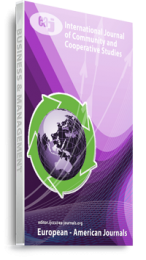This study examined the loan repayment behavior of farmers multipurpose cooperative societies in Anambra State. The famers are poor and cannot raise the money needed for farming and when they obtain loan repayment is usually poor. The study specifically examined the range of amount of loan applied for, amount approved, amount disbursed and repaid by the cooperative farmers. It investigated the socioeconomic factors affecting the farmers’ credit repayment ability and ascertained major problems affecting the farmers in loan repayment using t-test statistics and a multiple econometric model of the Ordinary Least Square (OLS). Findings revealed that there is a significant difference between the amount of loan received and amount repaid by the cooperative farmers. The joint effect of the explanatory variable in the model account for 91.9% of the variations in the factors affecting the farmers’ credit repayment ability. Four coefficients (educational qualification, farm size, loan application cost, and collateral value) are significant. Age, membership duration and income of the farmers are not significant but they show a positive relationship with loan repayment. Factors affecting the farmers’ credit repayment ability are significant at 0.000 significant level. The study therefore recommends among others that cooperative societies should endeavour to educate the farmers on financial discipline and management because it has proven to significantly influence loan repayment. Lending institutions should ensure that whoever they are lending to meets a minimum threshold in asset value before loans are accessed. This will help to reduce defaulters.
Keywords: : Loan Repayment, Farmers, Multipurpose Cooperative, Nigeria

